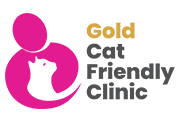Warning re anti freeze poisoning in pets in Swindon
Update 23/03/2015
Sadly we are again issuing an antifreeze poisoning alert to Swindon cat owners. Please be watchful and act quickly if you suspect your cat may be showing symptoms of antifreeze poisoning. Read more below:
Previous alerts
We have treated 2 cats from the Old Town area of Swindon suffering from antifreeze poisoning. We cannot rule out that this has not happened as a result of a malicious act. Please be vigilant and contact us if you have any concerns that your cat (or dog) is showing any symptoms of antifreeze poisoning.
Five cats on a small street have died from anti-freeze poisoning died in June 2014. All cats came from Gable Close, Abbeymeads. In the SN25 area there have been reports of 12 cases. Dogs and cats are both susceptible to poisoning with anti freeze.
Anti Freeze Poisoning in Pets
Many people are unaware of the dangers to pets from antifreeze poisoning. Many animals, particularly cats are attracted by the smell and the sweet taste of antifreeze (ethylene glycol) and the smallest amount can prove fatal.
Symptoms can start to show as quickly as 30 minutes after ingestion but it can be 2 or 3 days before signs of kidney failure are seen. Antifreeze poisoning occurs in two phases:
In the first phase, the pet may be lethargic, disorientated, uncoordinated and groggy.
The first few hours after ingestion are critical and immediate treatment can greatly increase the chances of survival.
The second phase, which can last up to three days, is characterised by symptoms such as
vomiting, mouth and stomach ulcers, kidney failure, coma and death.
To reduce the risk of poisoning, all brands of antifreeze should be handled carefully and treated as a highly poisonous substance. Ensure that antifreeze is stored well away from animals and children and ensure that spills are completely cleaned up, and that leaks from car coolant systems are immediately repaired. If you are in any way unsure as to whether you pet has ingested antifreeze it is better to be safe than sorry, seek immediate veterinary advice. We are open 24 hours a day, 7 days a week. There is always someone on hand to help.
Click to read the Swindon Advertiser article on the reported cases in June 2014





